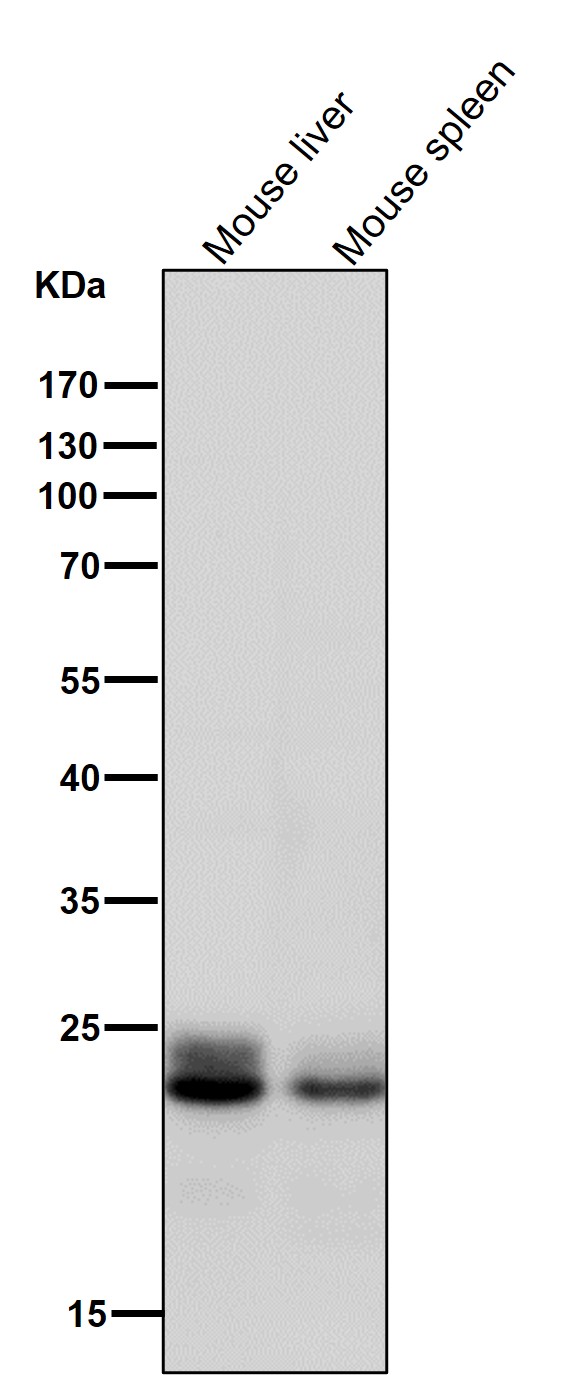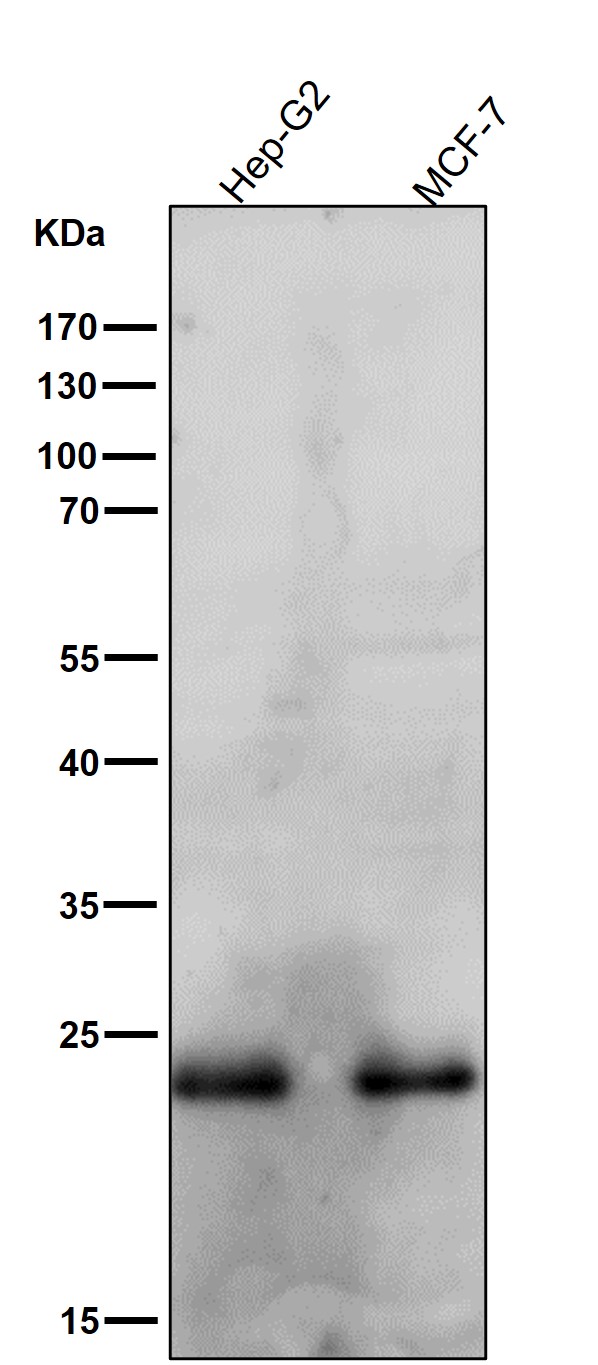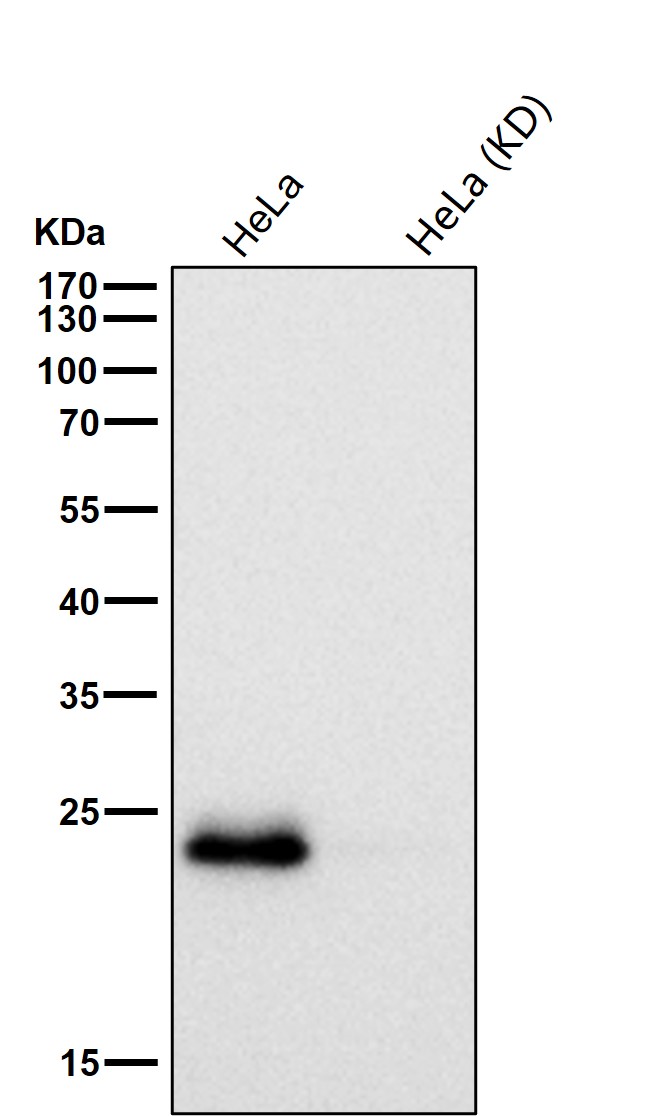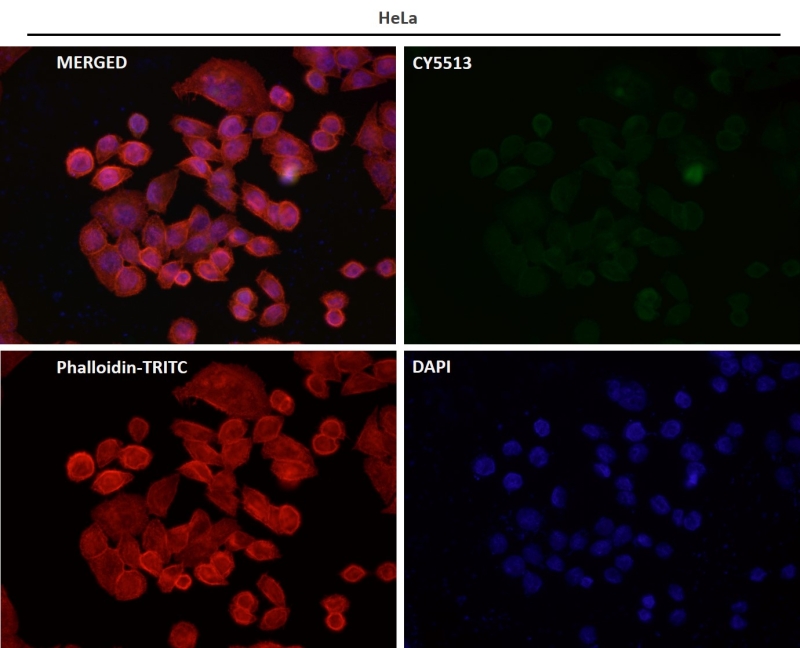



| WB | 咨询技术 | Human,Mouse,Rat |
| IF | 咨询技术 | Human,Mouse,Rat |
| IHC | 咨询技术 | Human,Mouse,Rat |
| ICC | 1/50-1/200 | Human,Mouse,Rat |
| FCM | 咨询技术 | Human,Mouse,Rat |
| Elisa | 咨询技术 | Human,Mouse,Rat |
| Aliases | RAB9A; DmRab9; Ras related protein Rab 9A;;Rab9A |
| WB Predicted band size | 23 kDa |
| Host/Isotype | Rabbit IgG |
| Antibody Type | Primary antibody |
| Storage | Store at 4°C short term. Aliquot and store at -20°C long term. Avoid freeze/thaw cycles. |
| Species Reactivity | Human,Mouse,Rat |
| Immunogen | A synthesized peptide derived from human Rab9A |
| Formulation | Purified antibody in PBS with 0.05% sodium azide,0.05% BSA and 50% glycerol. |
+ +
以下是关于Rab9抗体的3篇参考文献,按规范格式整理:
1. **文献名称**:*Rab9 GTPase regulates late endosome size and requires effector interaction for its stability*
**作者**:Ganley, I.G., et al.
**摘要**:该研究利用Rab9抗体进行免疫印迹和免疫荧光实验,证实Rab9通过调控膜运输维持晚期内体的结构稳定性,并发现其与效应蛋白相互作用对自身稳定性至关重要。
2. **文献名称**:*HIV-1 release requires the Rab9-dependent transport of multivesicular bodies to the plasma membrane*
**作者**:Barouch-Bentov, R., et al.
**摘要**:研究通过Rab9抗体阻断实验,发现Rab9依赖的多泡体运输途径是HIV-1病毒释放的关键机制,抑制Rab9可显著降低病毒颗粒的产生。
3. **文献名称**:*A role for Rab9 in the retrograde transport of mannose 6-phosphate receptors*
**作者**:Riederer, M.A., et al.
**摘要**:作者使用Rab9抗体进行免疫沉淀和共定位分析,证明Rab9参与甘露糖-6-磷酸受体从内体到高尔基体的逆向运输,影响溶酶体酶类的正确分选。
4. **文献名称**:*Structural basis for the interaction of Rab9 with its effector TIP47 in lysosomal enzyme transport*
**作者**:Suzuki, T., et al.
**摘要**:通过Rab9抗体结合实验及结构生物学手段,揭示了Rab9与效应蛋白TIP47的互作机制,阐明其在溶酶体酶运输中的分子调控途径。
以上文献均通过Rab9抗体验证其在细胞内膜运输、病毒释放或疾病机制中的功能,实验方法涵盖免疫荧光、Western blot及功能阻断研究。
Rab9 antibodies are essential tools in cellular biology for studying the function and localization of Rab9. a small GTPase belonging to the Rab family. Rab9 regulates intracellular membrane trafficking, particularly in the late endosome-to-trans-Golgi network (TGN) and endosome-to-lysosome pathways. It plays a critical role in maintaining lysosomal function by facilitating the transport of mannose 6-phosphate receptors (MPRs) and other cargo. Dysregulation of Rab9 is linked to lysosomal storage disorders, neurodegenerative diseases, and viral infections (e.g., HIV-1), as some pathogens exploit Rab9-mediated pathways for replication or immune evasion.
Rab9 antibodies are widely used in techniques like Western blotting, immunofluorescence, and immunoprecipitation to detect Rab9 expression, subcellular distribution, and interactions. They help elucidate Rab9's role in membrane dynamics, autophagy, and disease mechanisms. Polyclonal and monoclonal variants are available, typically raised in hosts like mice or rabbits. Specificity validation (e.g., knockout controls) is crucial due to potential cross-reactivity with other Rab proteins. Commercial antibodies often cite applications in research areas such as cancer, lipid metabolism, and infection biology. Recent studies also explore Rab9's involvement in extracellular vesicle biogenesis and cellular stress responses, expanding its relevance in biomedical research.
×